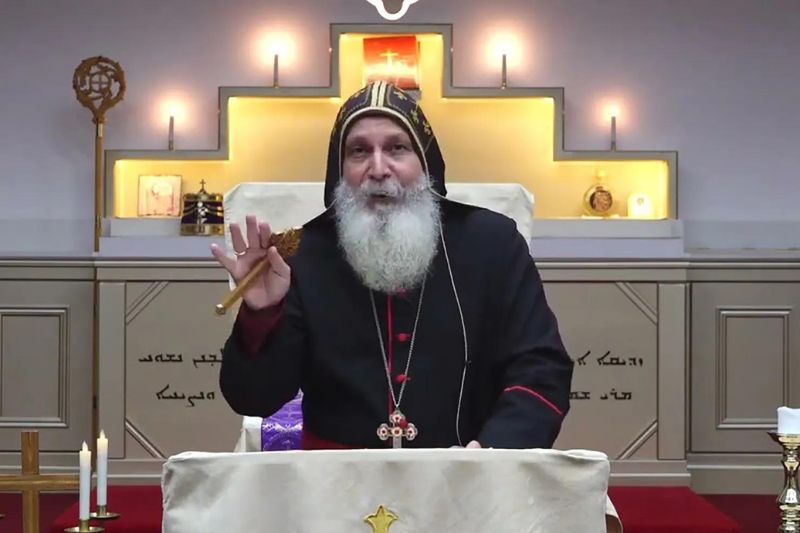The arrest of a boy in connection with the stabbing of Bishop Mar Mari Emmanuel and of others on suspicion that they were likely to engage in other violent ideologically inspired violence have focused attention on terrorism in Australia. It has also drawn attention to the laws against terrorism and to the role of the police in enforcing those laws and preventing violence.

Two aspects of these events deserve reflection. The images of terrorism associated with its history and practice in other parts of the world, and the inflexibility of laws against terrorism in dealing with its perpetrators, both risk obscuring the complexity of the human reality underlying terrorism.
Terrorism is a word loaded with heavy historical and rhetorical associations. It is easy to assume that those associations will allow us to regard all persons who have beliefs or perform actions identified with terrorism as terrorists. Terrorism will then define their whole identity in the same way that in some societies people who are attracted to some Marxist ideas, and who associate with others of like mind, are defined as Communists. They are then assumed to approve the actions of Stalin and Pol Pot.
The slide between terrorism and terrorist is easy and misleading. Terrorism is usually associated with the Middle East and with groups which claim historical grievances, appeal to Muslim inspiration, and engage in activities that kill and maim people indiscriminately. The popular image of terrorists is of people in balaclavas killing randomly out of blood lust. The image, however, conceals the point of terror, which is rational though morally unacceptable. It is to draw attention to their cause, to create fear in the community, and to incite governments into a savage response that will polarise society and destroy its self-image as peaceful and democratic. In this way, they hope, terror will generate converts to their cause.
The simplistic view of terrorists and terrorism as alien ignores the origin of the word. It arose out of the French Revolution. At a time when the French republic was faced by losing battles, resistance from Royalists and the bodies associated with the previous regime, and the breakdown of civil society, the Revolutionary Government under Robespierre introduced the reign of terror with its extrajudicial arrests and executions. Terror was an instrument of the state in crisis, not of its enemies. In practice it gave strength to its enemies and led to the execution of its executors.
Today, too, any helpful reflection on terrorism must extend to state terrorism, whether by hostile regimes, or more significantly in this context, by states considered to be allies. Extrajudicial killings have been carried out by all sides in the Middle Eastern conflict, and in civil wars such as those in El Salvador and Sri Lanka. Yet in general only the violent actions perpetrated by agents of regimes to whose interests we are not aligned are described as terrorism. Terrorism is defined in political as much as in ethical terms.
The point of this history is not to excuse or to praise ideologically based violence against other human beings but to point to its complex reality and to be discerning in our response to it. As a society we must give weight to the complexity, and at the same time work to anticipate, prevent, and respond to terrorist action. It is not helpful to accept polarised stereotypes of black clothed and hooded, totalitarian terrorists opposed to casually dressed and open-faced civilians and democratic institutions.
'Lengthy prison sentences attached to terrorist crimes will not help them to change their lives but will reinforce their immaturity.'
In the recent stabbing of Bishop Mar Mari Emmanuel, the response seems to have been generally correct. The police appear to have identified a group of young people whose role models have been people who have adopted a radical form of Islamic identity, and to have arrested them under appropriate laws. The courts have heard and mostly acceded to the police request to refuse bail in order to protect the community. The larger task of the police will now be to investigate how they became exposed to that violent ideology, were attracted to it, and can be drawn away from it.
In this process, the people suspected must be treated as children who have become committed or attracted to act violently, not as terrorists who happen to be children. This means that their detention should be limited and respect their status as children. The penalties of terrorism are designed for adults, among whom there will also be significant differences. Children, however, are distinctive in the immaturity of their intellectual and emotional development. They do not understand the consequences of their actions. Nor can they easily override the judgment of their peer group. In order to develop responsibility for their actions they need the support of family and of wise role models. Lengthy prison sentences attached to terrorist crimes will not help them to change their lives but will reinforce their immaturity.
To identify children as terrorists, too, will distract us from considering the broader social and psychological contexts that made this violent ideology seem reasonable to individuals. Reports from his family suggests that the boy who allegedly attacked the priest was deeply disturbed. We should also enquire about the factors in the upbringing of children that might fuel their anger against society and attraction to ideological violence. These might include social disadvantage, the experience of discrimination, and their limited access to health services, education and work.
Reflection on criminal action always leads to larger questions about the society in which it takes place. It is a sign of unfinished work.
Andrew Hamilton is consulting editor of Eureka Street, and writer at Jesuit Social Services.
Main image: Victim of Sydney terrorist attack, Bishop Mar Mari Emmanuel.